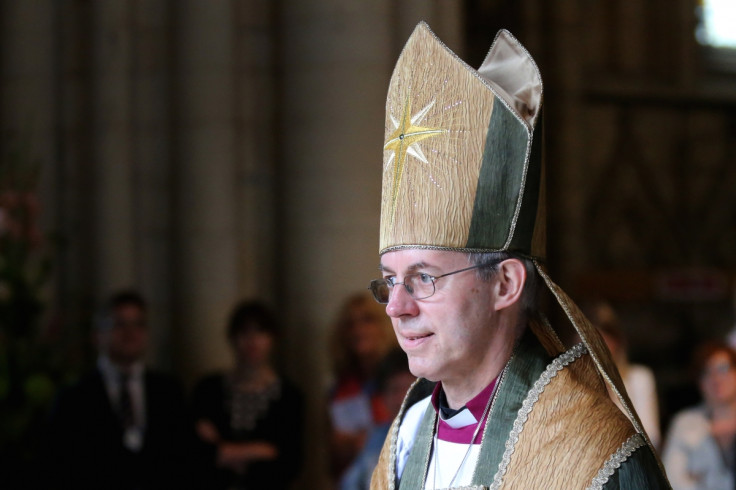The Church of England has sent a clear message to its conservative churchgoers – you're not wanted
The treatment of Bishop Philip North, an Anglo-Catholic, shows the Church's prospects for unity are grim.

It is with a heavy heart that I must announce that the Church of England is at it again. Fresh off a truly disastrous session of General Synod (the Church's parliament), it has plunged itself headlong into further public ignominy.
The latest disaster concerns Bishop Philip North, currently the Bishop of Burnley. He was chosen by the bureaucracy to be the new Bishop of Sheffield (a promotion from suffragan to diocesan status).
Bishop North, however, is a traditionalist Anglo-Catholic, one of a sizable minority within the Church that tends to adhere more to traditional Catholic doctrine, as opposed to the Church of England's more Protestant tendencies.
Consequently, he does not accept the ordination of women, in line with the Roman Catholic Church, the Eastern Orthodox churches, and indeed the Church of England itself prior to 1992. This position brought on a series of events that have ultimately led to his withdrawal of his acceptance of the nomination.
It may seem to the outsider bizarre that North should have remained part of the Church of England, never mind become a bishop. This, however, would be to underestimate the Church of England's magnificent ability to make awkward but necessary compromises.
In 1993, Synod passed legislation allowing parishes that did not accept women priests to continue in their refusal. When the legislation permitting women bishops was passed in 2014, Synod also endorsed the Five Guiding Principles, which firmly stated that those who could not accept women's ministry were to be permitted to flourish to the highest degree within the church. All would gently agree to disagree, and operate as equals in loving but honest co-existence.
These lofty and inclusive principles now stand exposed as hollow lies after North was forced to withdraw his acceptance of the Sheffield post after a furious media campaign, driven by liberal clerics such as Radio 4 stalwart Giles Fraser and the Dean of Christ Church, Martyn Percy. Special-interest groups such as Watch (Women and the Church) added their voices to the howling horde. The support of the Archbishops did not prove enough backing for North. Nor did the endorsement of swathes of women priests in Burnley, who have grown to admire him greatly over the course of his tenure. In the face of concerted pressure, North cracked.
For this he should not be blamed; it is not common for ecclesiastical appointments to be greeted with angry letters from the local MP. A similar campaign had earlier prevented North from taking up a suffragan post at Whitby.
This tragedy is so hard to bear because it is widely agreed that North is something of a superstar. Notoriously hard-working, high-energy, and charismatic, he is one of the only senior figures in the Church to point out that its obsession with liberal cause célèbres (such as the recurrent question of same-sex marriage) is damaging its public image, and in particular its ability to connect with socially conservative working-class communities.
The bishops of the Church near-universally endorsed Remain in the EU referendum, another sign of the Church's consistently progressive bent. This was another wholly self-inflicted PR calamity; the national established church, which should have been a focus of national unity, made itself into yet another source of bitter division. North was one of few figures to emerge from that disastrous episode with any credit.
Reactions from North's supporters among the clergy run the gamut from horror to outright despair. Rebecca Feeney, an ordinand training for the priesthood at St Stephen's House, commented that: "There has been consistently misleading and polarising rhetoric about the Catholic position, which has resulted in immense negative press about Bishop Philip – someone a lot of women, myself included, would not have trained or be training for priesthood without. For many, he is a living embodiment of what mutual flourishing means, and in light of this, the treatment he has received is particularly strange and cruel."
Fergus Butler-Gallie, an ordinand at Westcott House, fired a mighty broadside: "I'd say that any affirmation that involves the personal smearing of a brother or sister in Christ is no affirmation at all and that, if anything, it makes the church look even more like a genitally-obsessed bunch of do-gooding hobbyists than ever before.
"The fact that the highest paid clergyman in the Church of England (Martyn Percy) can use the deanery of an Oxford college as a sniper's post to take down a convincing advocate for the very poorest in society (with a columnist for the Guardian feeding him his ammunition) will send one message and one message alone – we care more about our own sub-Freudian internal wranglings than we do about the care of God's people."
Future prospects for the unity of the church are grim. This episode has sent a clear message to conservative Anglo-Catholics that they are not wanted. The same logic that barred North from his diocesan post will surely be applied to suffragans before long.
The schismatic Sword of Damocles hovers over the neck of the Bride of Christ. No one wants the sword to fall; schism is near-universally viewed as a sin of terrifying magnitude. Nevertheless, an eventual partition looks far more likely today than it did yesterday. Future internal conflicts within the church will be fought in an atmosphere of heightened distrust: already an odour of stifling fear is choking off the church's effort to refocus on evangelism before it can even begin.
Justin Welby, Archbishop of Canterbury, is a talented man of great integrity and determination. That will not be enough to help him navigate the storm ahead. He needs a miracle. We must pray he gets it.
© Copyright IBTimes 2025. All rights reserved.






















